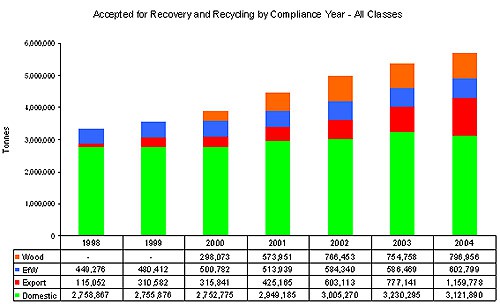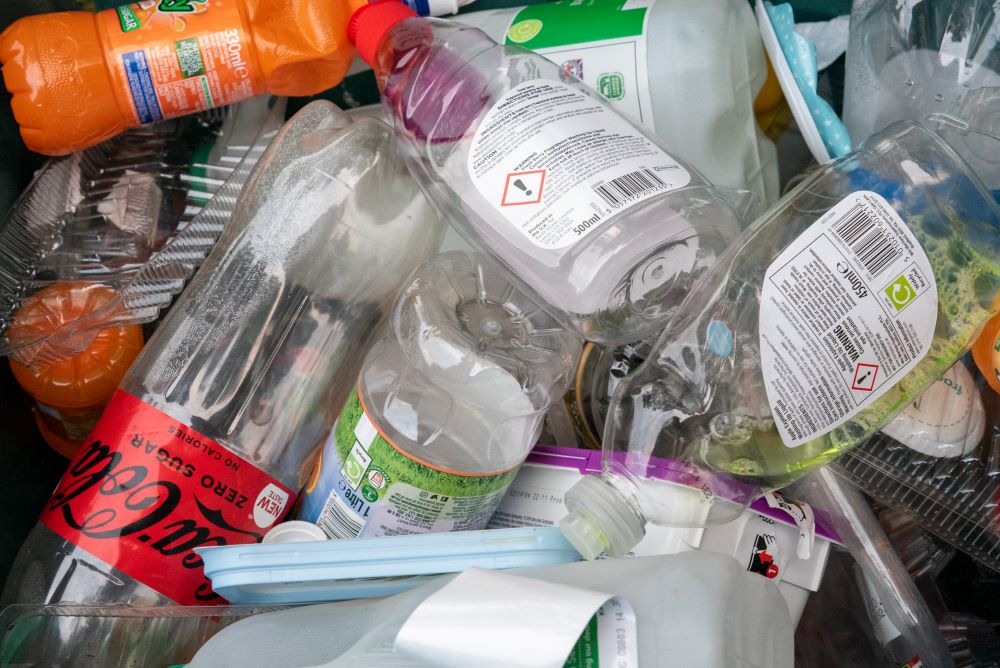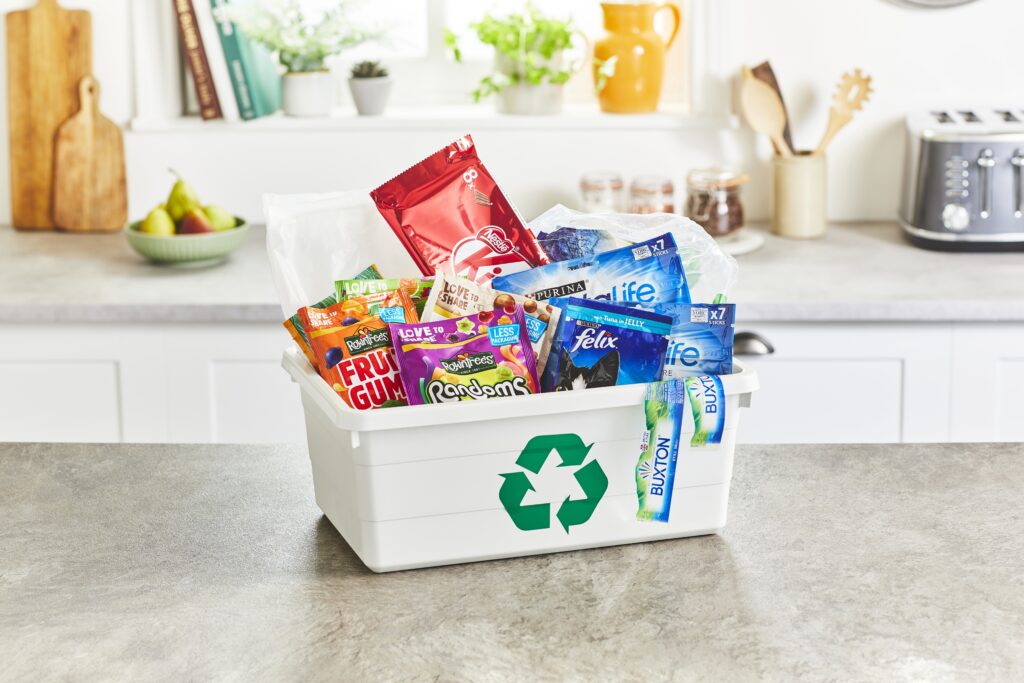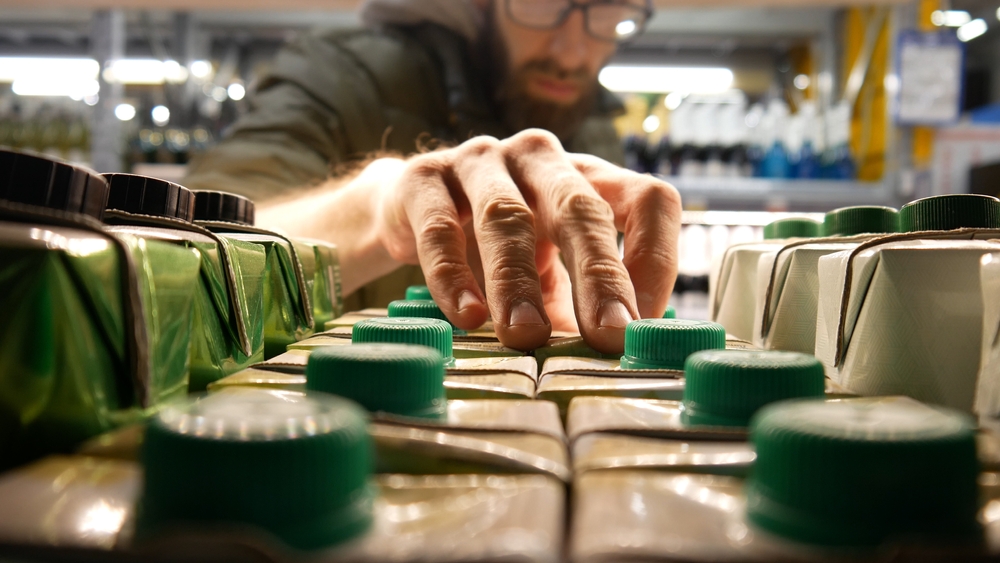Wastepack said today that Defra figures prove there has been “very little growth” in domestic packaging waste reprocessing, and that increases in recycling rates have been maintained largely through exports.
”It is now very apparent that monies raised to date have not been invested. The much-needed infrastructure that gets more of the right material out of the waste stream in time to contribute towards the 2008 target is not there.“
– Wastepack
And, it warns that the considerable increase in exports of packaging waste have been achieved because “protocols” allow a percentage of mixed recycling waste to be counted as packaging waste, material which would have been “exported regardless of whether the producer responsibility regulations were in place or not”.
Hole
The UK has only met its packaging waste recovery targets because of this material, the compliance scheme said, stating: “Protocols blow a large hole in Defra’s claim we have increased recycling packaging waste by 22%.”
Under the UK's packaging regulations, packaging producers are supposed to pay for new recycling infrastructure by purchasing packaging waste recovery notes (PRNs) from accredited reprocessors. This funding is supposed to help the UK increase its recycling rates to reach targets set by Europe's Packaging Directive for 2008.
But Wastepack said this PRN revenue has “not been invested”. In a public statement released today, the scheme said: “Regardless of the endless arguments on PRN (packaging waste recovery note) price stability for investment, price support etc; it is now very apparent that monies raised to date have not been invested.
“The much-needed infrastructure that gets more of the right material out of the waste stream in time to contribute towards the 2008 target is not there.”
Wastepack pointed out that since 1998, domestic reprocessing levels have only increased from 2,758,867 tonnes a year to 3,121,890 tonnes when not including wood recycling figures. It says exports have risen in the same period from 115,052 tonnes to 1,159,778 tonnes.
Information
Peter Gaffney, director of environmental services and compliance at Wastepack, said that taking the average price of PRNs, last year as much as 20 million had gone to exporters for exporting packaging waste for recycling. But, he said there was no information available on how that funding – which was supposed to be spent increasing recycling infrastructure – was spent.
He also warned that relying on exports to meet the UK's recovery targets under Europe's Packaging Directive poses too high a risk of failure.
” All the eggs are in one basket here. If for any reason China says 'sorry guys, I don't want any more paper', what can we do?“
– Peter Gaffney, Wastepack
A chart assembled by the scheme (see below) points out “so clearly” that the PRN system “has not increased the amount of UK reprocessed packaging waste to a level that will by itself meet or significantly contribute to meeting the 2008 target”, the scheme said.
Wastepack warned: “The inherent risk associated with this reliance on export markets is very evident – when they dry up we have no UK infrastructure to fill the gap.”
Mr Gaffney told letsrecycle.com: “All the eggs are in one basket here. If for any reason China says 'sorry guys, I don't want any more paper', what can we do? There are now emerging producer responsibility schemes in Poland, Lithuania and other new EU countries – which are also adopting the PRN system – which could mean the Chinese buy their paper instead. What are the Chinese going to do? It's a world market.”
Options
The compliance scheme said if the UK is going to meet the 2008 targets it has three options. Firstly, increase the percentage of material that counts as packaging under export “protocols”. However, this option could be hard to justify to the EU, Wastepack warned, and would not take account of any potential fraud in packaging exports.
Another option, which would decrease the obligation on already-registered producers, would be to close the “loophole” on foreign-based packaging producers. Wastepack has said it has been told by the Environment Agency that if the ownership of packaging remains with a foreign company, and a UK operation merely fulfils a role as contract pack filler, there is no obligation as the Agencies have no power of enforcement abroad.
| Related links: |
The third option – the original intention of the PRN system – is to use PRN revenue more effectively to generate real growth in packaging waste collection and recycling, Wastepack said.
Voluntary
The scheme said it is still possible to have a voluntary system over and above the PRN system that raises money to invest directly into extracting more material from the household waste stream.
It said: “Wastepack is working on such a scheme that will benefit all involved, obligated producers and reprocessors alike, as we strive to assist in meeting the UK 2008 targets. The scheme aims to be commercially attractive to all parties but it is voluntary.
“This does of course mean that producers would have to do more than the regulations require. Hard-pressed obligated companies may take the view that they have already paid to grow recycling. But if the voluntary system does not deliver and fails, Defra must consider making it mandatory, otherwise the UK will never achieve the targets,” Wastepack warned.
 |











Subscribe for free